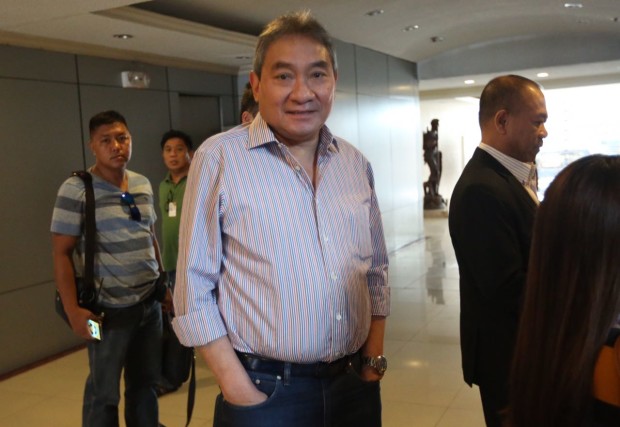Homegrown tobacco firm Mighty Corp. has agreed to pay at least P3 billion as settlement for its excise tax liabilities, Justice Secretary Vitaliano Aguirre II said on Wednesday.
Aguirre said Mighty Corp. President Alex Wongchuking had already sent a letter to President Duterte agreeing to the latter’s proposal for the firm to pay P3 billion to settle its tax liabilities.
“They have already sent a letter to the President stating that they are accepting the President’s proposal,” Aguirre said.
However, he said Mighty Corp. asked that they be allowed to pay the P3 billion in tranches with an initial payment of P1 billion.
Duterte earlier said he was willing to enter into a compromise with Mighty Corp. if the firm would agree to pay double the amount of its tax liabilities.
The money, the President said, would be used to rehabilitate hospitals in Tawi-Tawi, Sulu and Tondo.
Despite the settlement agreement, Aguirre said the government could still pursue the tax evasion cases against the cigarette manufacturer.
He added that he had also issued an Immigration Lookout Bulletin Order (Ilbo) against board members of the tobacco firm.
Aguirre earlier issued Ilbo against the Wongchuking siblings Alex and Caesar.
Earlier this month, the Bureau of Customs (BOC) and the Bureau of Internal Revenue (BIR) confiscated 11,044 master cases of Mighty cigarettes worth P215 million in General Santos City and 62,200 master cases valued at P1.98 billion in San Simon, Pampanga.
Last week, the BOC seized three more containers with Mighty cigarettes in the Port of Cebu and in Tacloban.
As this developed, the President’s chief legal counsel Salvador Panelo accused the BIR under the Aquino administration of protecting Mighty Corp. by not filing the tax cases against the firm.
“I think, obviously, they’re protecting the Mighty cigarette. Because if you have a case prepared and you don’t file it, there’s only one reason for that. You’re protecting the respondent,” Panelo told reporters.—WITH A REPORT FROM LEILA B. SALAVERRIA
